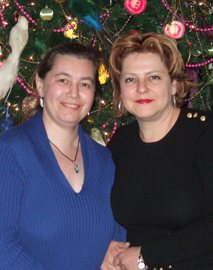“… An’ I am in Texas until the 13th, call me…what’s up?”
It was a message from Lilya Zilberstein, who is currently teaching and performing at Texas Christian University International Piano Academy and Festival in Fort Worth.
In 1984, I became a student of piano performance and pedagogy at the prestigious Gnessin’s State Musical College in Moscow, It was an exciting time to be there because we were among the best pianists in the country. All of us were trying to break into the larger performing arts world. We practiced 4-6 hours a day and, of course, partied like you would expect kids in our early twenties to do.
A few years later, I ran into Lilya Zilberstein in the cafeteria. She was a freshmen, a modest girl with a long dark braid and a friendly smile. She was 22 at the time, and the best of the best at the school.
She was practicing for the Ferruccio Busoni International Piano Competition, one of the most prestigious competitions for pianists from all over the world. Its program lasts 3 hours, playing the most difficult pieces, all memorized, as well as a piano concerto with the orchestra. After a preliminary audition process, competitors play 3 rounds. After each round, a big group of players will go home, and a few will advance.

In 1987, Russia was still part of the Soviet Union, so it was difficult to attend such a competition in the West. The country was closed for Russians to go abroad on any sort of business unless the government granted an exit visa.
To secure this exit visa, participants from Russia had to be selected through an audition process at their own Universities and Conservatories, then they competed again for a special jury at the National level. Only after winning that national competition were they allowed to attend and compete with other pianists from all over the world. Russia would send no more than 2-4 people to play at the largest competitions (out 30-40 the best players from all over the country).
